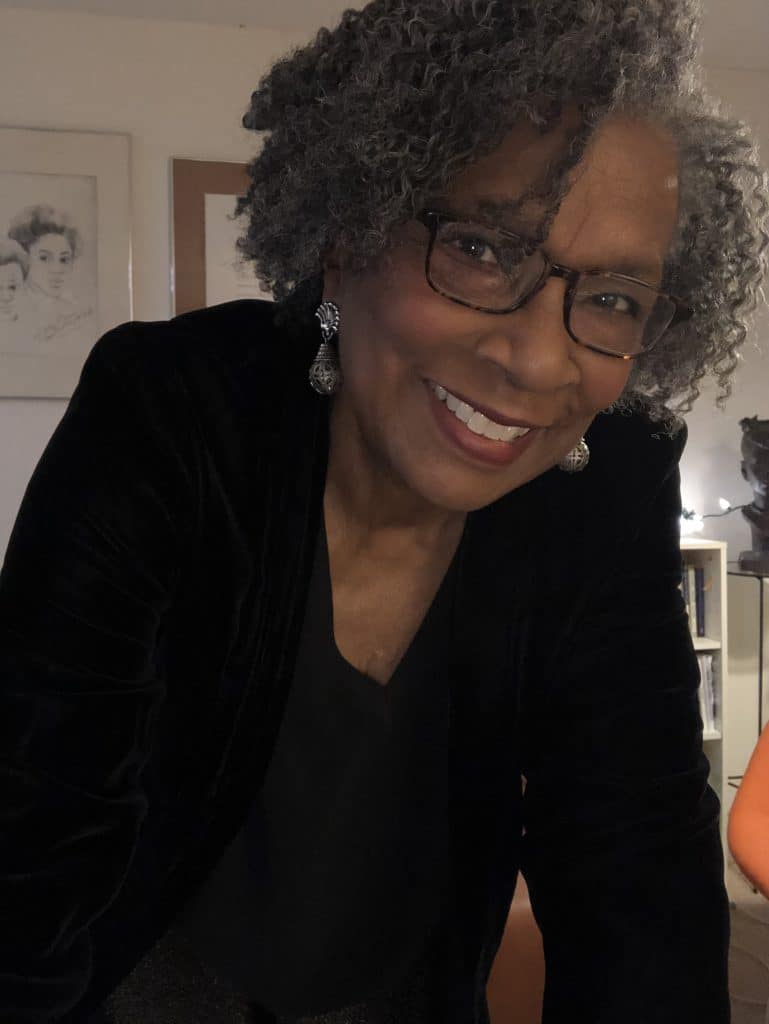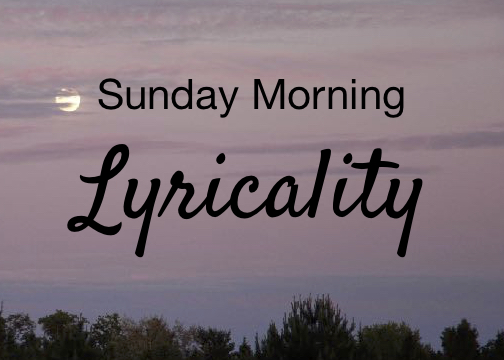Welcome to Sunday Morning Lyricality, featuring a weekly song or poem by a Minnesota writer. This week, we introduce our guest editor for February, 2021, Mary Moore Easter.
“What Comes Now?” by Mary Moore Easter is a poem in which the poet and her subject, Eliza (a Mississippi slave), ponder her world, mid-escape. On the surface, this appears to be a straightforward story about a woman who escaped from slavery into freedom, but the poem ripples with meaning, like “the roiling surface / of (a) wet river.”The word ponder, Merriam-Webter’s Dictionary tells us, implies a “prolonged inconclusive thinking,” and this poem raises questions for the reader to ponder. Is this a song of celebration or an elegy of lament? Is it about Eliza’s world in 1860 or the poet’s world “now?” How many voices does this poem contain? In the middle of this early 21st century poem about a late 19th century woman, the poet quotes a 20th century poem by Lucille Clifton. If you are willing to ponder with Eliza, and the author of this poem, and the poet she quotes, as well as “a hundred Africans,” then every reread will carry you further “out / in unseen time and space.”
Tracy Rittmueller
What Comes Now?
Mary Moore Easter
from Free Papers: poems inspired by the testimony of Eliza Winston,
a Mississippi slave freed in Minnesota in 1860
In this poem, Eliza and the poet ponder her world, mid-escape
Lawd, I’m out here on your word, a plea each time
she was set to hide in the wood
waiting for rescue to find her.
Lawd, I’m out here on your word,
a reminder of promises, a compact for faith met
with courage inside risk,
words forced from her lips by uncertainty
borrowed from others who looked for hope in despair
while she bided her time alone.
No way she knew to say
“I celebrate myself” and yet she did.
She could not say what hadn’t been written yet:
“come celebrate/ with me
that everyday/ something has tried to kill me/
and has failed.”
She took “(her) one hand holding tight/ (her) other hand;”
and set out not without regret
in clear pursuit of what most thought
she couldn’t win or didn’t deserve to get.
Hers was the year Clothilde, the last slave ship,
sneaked into anchor and was set afire
to hide the crime, disgorging
a hundred Africans onto land where they met
the very bondage she would not accept.
She could not see six months ahead
a nation split, half willing to forget
the principles that bound them,
half standing up to pay a debt
to stolen men and women.
She did not know the details
of the world that swirled around her world.
She took off anyway on the roiling surface
of the wet river, her deed stretching out
in unseen time and space.
***
Mary Moore Easter, a 2020 recipient of an Artist Initiative Grant from the Minnesota State Arts Board, is the author of four poetry books: Free Papers: poems inspired by the testimony of Eliza Winston, a Mississippi slave freed in Minnesota in 1860 (release date February 2021); The Body of the World(Minnesota Book Award in Poetry Finalist, 2019), Walking from Origins, and From the Flutes of Our Bones (2020). Originally from Petersburg, Virginia, she pursued a long dance career in Minnesota as an independent dancer/choreographer and Founder and Director of Carleton College’s dance program.
“What Comes Now” is from Free Papers: poems inspired by the testimony of Eliza Winston, a Mississippi slave freed in Minnesota in 1860 by Mary Moore Easter, ©2021, Finishing Line Press. It appears here with permission of the author.

